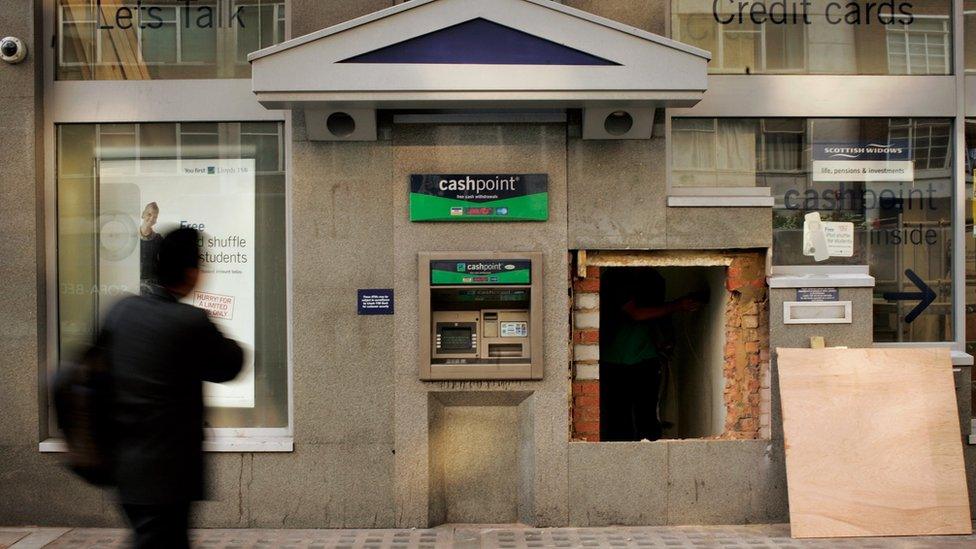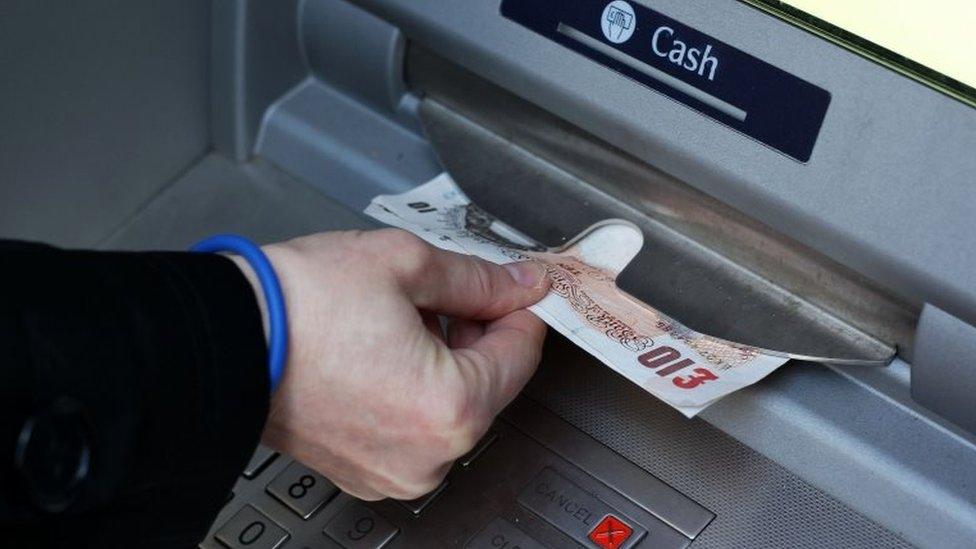Student 'money mules' sentenced for money laundering
- Published

More than £10,000 was transferred into the students' accounts
Two students thought to have been used as "mules" by criminals have been sentenced for money laundering.
Abdi Mohamed and Nyanjura Biseko, both 22, pleaded guilty after more than £10,000 of fraudulently obtained money was transferred into their accounts.
Sussex Police believe the pair were used as "money mules" and said the case highlights how students are being "targeted and used to launder money".
Mohamed was jailed and Biseko given a non-custodial sentence.
Last month, Kent Police warned that "money mules" - who allow criminals to launder money through their bank accounts - risked imprisonment, after BBC South East discovered that gangs were recruiting young people on social media.
Mohamed and Biseko were arrested as part of an investigation into an online scam, in which a book-binding company in Manchester was defrauded of £37,986 on 14 July 2016.

Abdi Mohamed received a six-month prison sentence
Sussex Police took control when the fraud was linked to a suspect in Barnham, West Sussex.
Officers found that more than £10,000 was put into the bank accounts of Mohamed and Biseko, before being spent or withdrawn as cash.
Det Con Paul Gilmour said: "Mohamed and Biseko received the criminal proceeds while they were students. Even though they may not have known where the money had originated, they did know or suspect that it was criminal property. This case highlights students can be targeted and used to launder money."
At a Portsmouth Crown Court hearing on 26 October, Mohamed, of Tennyson Road, Southampton, received a six-month jail term.
Biseko, of Orchard Lane, Southampton, was given a 12-month community order, with 80 hours of unpaid work.
They both pleaded guilty to possessing criminal property at an earlier hearing.
- Published11 October 2018

- Published27 September 2018

- Published26 April 2018

- Published27 November 2017

- Published29 July 2017
